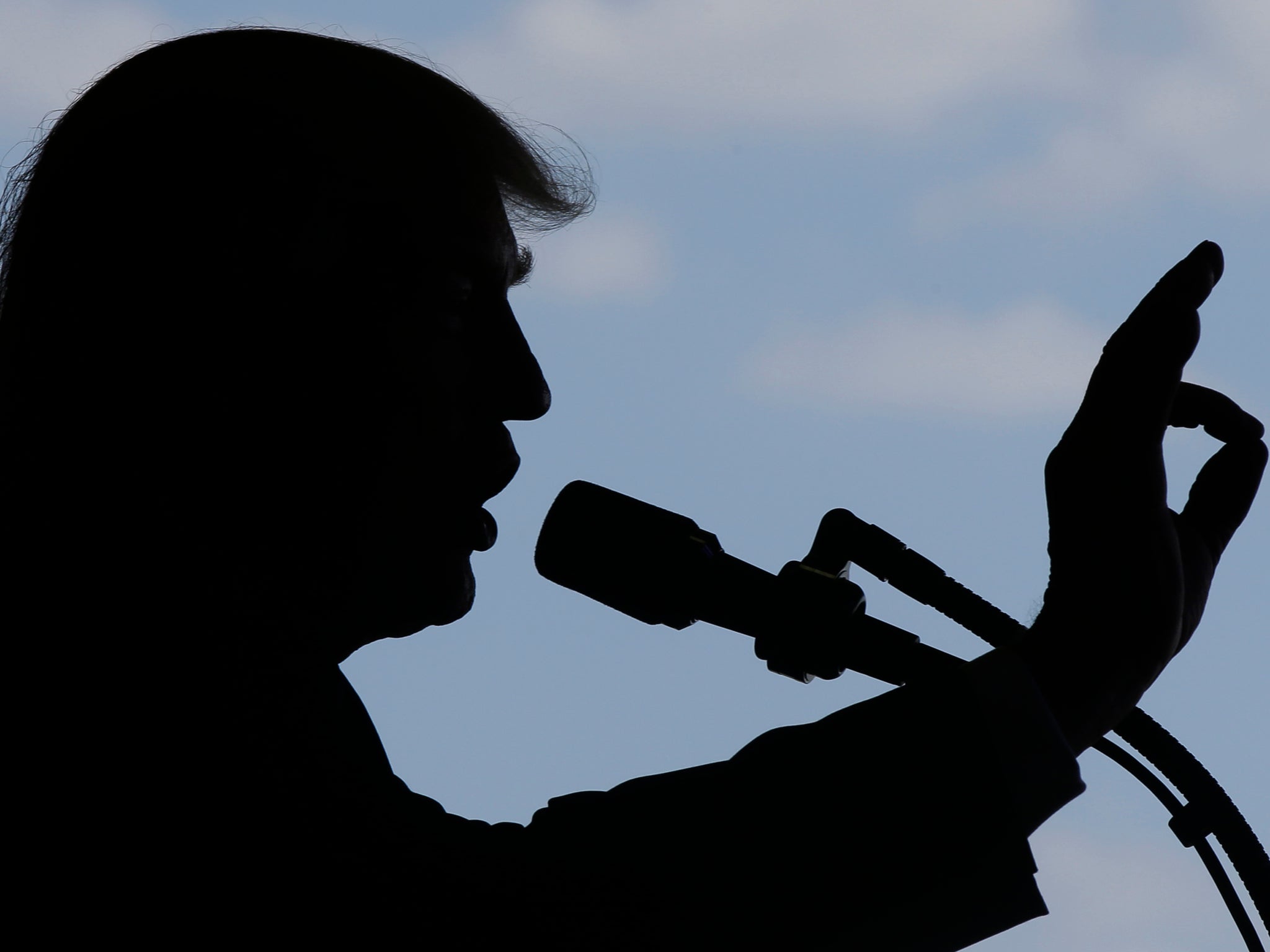Trump abandoning the Paris climate pact is the most dangerous thing he’s done... but not for the reason you think
Ivanka Trump, James Mattis and Rex Tillerson – the former boss of oil giant Exxon – are believed to have argued that the US would pay too high a diplomatic price for quitting the accord

One day, people might come to view the Paris Agreement on climate change as “the moment that we finally decided to save our planet”, Barack Obama optimistically opined as the US and China jointly ratified the historic accord.
But, just eight months later, it appears that dream is in tatters with multiple reports that Donald Trump will rip up the deal which committed countries to slashing carbon emissions in an effort to prevent global warming from entering particularly dangerous territory.
It appears certain that the world’s second biggest source of greenhouse gases will thumb its nose at most of the rest of the world, scientists and people not given to bizarre conspiracy theories.
Bizarre conspiracy theories like it’s all a hoax perpetrated by China – that one’s from Donald Trump – or a plot by the United Nations to create a world government – Lamar Smith, the Republican chair of the House of Representatives’ Science Committee. Anti-Science Committee, more like.
This is definitely bad news, but perhaps not for the reasons you might think.
The switch to a low-carbon economy has gained a life of its own. As the price of renewable energy, particularly solar and onshore wind, has tumbled, the process is increasingly being driven by market forces as much as well-meaning politicians.
US states and cities have already started ramping up efforts to go green in the wake of Trump’s election. And the President’s oft-repeated plan to “Make America Great Again” by reviving the coal industry may prove more difficult than he believes, largely because of competition from cheaper shale gas. So four years of a climate science-denying Trump administration might not actually be so bad for international efforts to limit global warming.
The real danger could come from the geopolitical fallout.
During Trump’s disastrous trip to Europe, his infamous alpha-male handshake met its match in Emmanuel Macron when the newly elected French squeezed so hard the US President was forced to publicly concede in front of the cameras.
He was also ridiculed after childishly pushing the Prime Minister of Montenegro out the way so he could be at the front of a group of Nato leaders.
Trump found himself publicly upbraided by Angela Merkel, largely because of his views on climate change, and then Macron struck again, pretending to greet Trump before swerving at the last moment to speak to Merkel first, two other people, before finally acknowledging the “Leader of the Free World”.

Trump doesn’t like being teased. His face at a White House Correspondents’ Dinner as the then President Obama ridiculed him over the “birther” conspiracy was evidence enough of that.
In fact, it’s not totally implausible to believe that getting back at the “nasty people who teased me” could have swung what was said to be a finely balanced decision on the Paris Agreement.
Heavyweight figures in his administration: his own daughter Ivanka Trump, Defence Secretary James Mattis and Secretary of State Rex Tillerson – the former boss of oil giant Exxon – are believed to have argued that the US would pay too high a diplomatic price for quitting the accord.
Countries who “go back on their word” can find it more difficult to cut new deals with other states, something Trump, who regards himself as an arch-dealmaker, would probably have taken seriously. A US withdrawal from the Paris deal would further widen the rift between the US and European Union, potentially causing problems within Nato, which Moscow-friendly Trump once described as “obsolete” although he later reined back on that assessment.
It could also spark a trade war with talk of US exports being hit by carbon taxes to compensate for the Trump administration’s lack of action to reduce emissions. And this suggestion has not just come from the usual suspects – the former conservative French President, Nicolas Sarkozy, was among those to make it.
This would pit the US – along with fellow Paris refuseniks Syria and Nicaragua – against nearly 200 countries who have signed up to the Paris accord.
It could force oil-producing countries like Saudi Arabia, Russia and even post-Brexit Britain to choose sides.
So it’s perhaps understandable that Theresa May has been maintaining a “pact of silence” over Trump, Paris and the rapidly rising temperature, both meteorologically and diplomatically speaking.
After all, things could get really rather messy.
Join our commenting forum
Join thought-provoking conversations, follow other Independent readers and see their replies
Comments
Bookmark popover
Removed from bookmarks